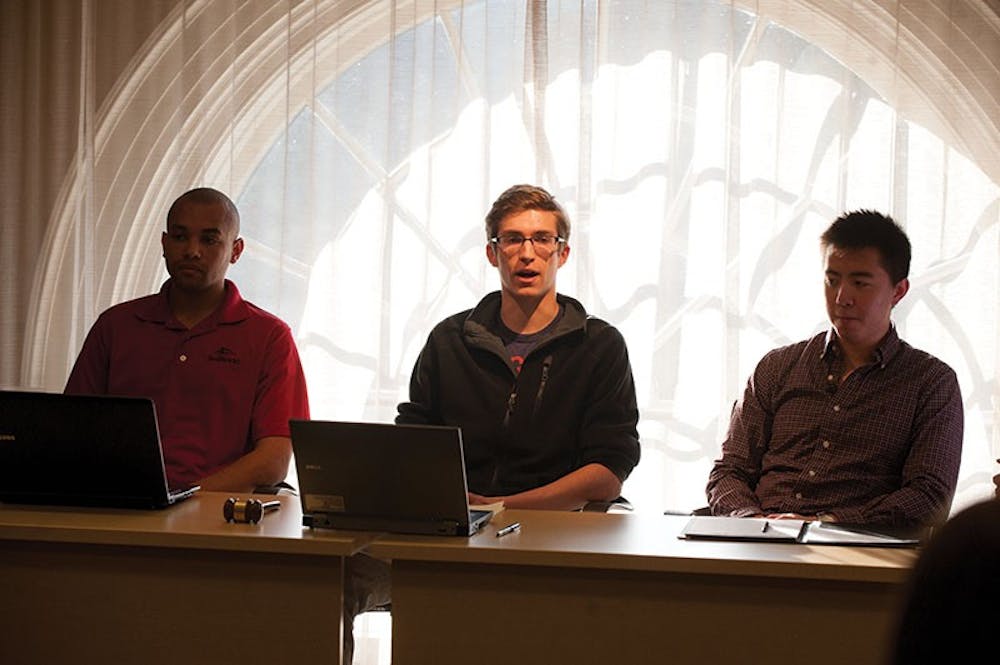The University Judiciary Committee announced the selection of its senior support officers at its general body meeting Sunday evening. The incoming senior investigator, educator and counselors will join the Judiciary Committee’s executive committee.
The senior support officers’ job is to oversee about 100 support officers, who work as counselors, educators and investigators.
“As far as senior support goes, the executive committee wants to give them room to do their jobs,” said Committee Chair David Ensey, a third-year College student. “They’ve been brought into these positions both to be administrators and provide feedback to the executive committee from the perspective of support officers.”
All the senior support officer positions were contested, Ensey said, hinting at the large number of students hoping to take on leadership positions with the Committee in the coming years.
“We were really enthusiastic about their ideas across the board,” Ensey said. “They were committed to improving communication both within the UJC and our outreach efforts.”
Ensey also announced at the meeting the creation of a subcommittee on marketing to streamline the Committee’s branding.
“Our senior data manager is going to be setting out on a project to improve the public-facing UJC website … and we also have an interest in standardizing our recruiting materials,” Ensey said.
Third-year College student Patrick Greco, one of the incoming senior counselors, said he wanted to improve outreach to graduate schools, since the Law School is the only graduate school well-represented among counselors.
“It’s easier to get the undergraduate’s attention,” Greco said. “Their orientations are more structured and easier for us to get involved in.”
Greco said his first priority was to make sure all accused students felt safe and supported by counselors throughout the trial and sanction process.
Second-year College student Mirenda Gwin, the incoming senior investigator, said she wanted to improve the Committee’s internal communication. Counselors often receive more recognition during the trial process, but Gwin said it was important to emphasize their involvement in pre-trial processes to all members of the Committee.
“I think understanding what the different parts of what UJC do would help the cohesion of the UJC as a body,” Gwin said.
Second-year College student Timothy Kimble, the incoming senior educator, said the goal of the educators would continue to be finding better ways to reach out to the student body.
“Almost any senior educator’s main objective is to connect more with the student body … making them aware of the UJC, making them aware of the standards of conduct,” Kimble said.
Kimble, who is also a resident advisor, said he wants to reinstitute dorm talks, which did not occur this year, to better communicate information about the Committee to incoming first-year students.







